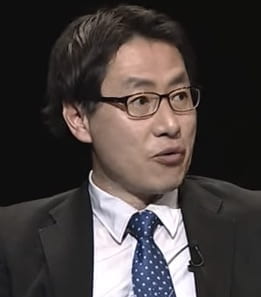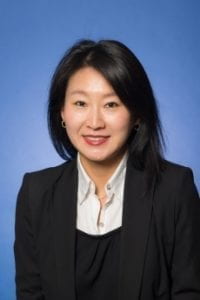The GW Institute for Korean Studies
&
the East Asia National Resource Center Present:
Korea Policy Forum
“China’s Envisioning of North Korea’s Future,
Inferred by the Summits between Xi Jinping and Kim Jong-un”
Speaker
LEE Seong-hyon, Director, Center for Chinese Studies at the Sejong Institute
Date & Time
Monday, May 20, 2019, 3:30 p.m. – 5:00 p.m.
Venue
Room 505, Elliott School of International Affairs, the George Washington University
1957 E St. NW, Washington, DC 20052
Event Description
During its negotiations with North Korea, Washington has urged Kim Jong-un to choose denuclearization that will allow North Korea to enjoy prosperity on par with South Korea. The U.S. helped South Korea to become a prosperous and democratic state. In the U.S. history of foreign intervention, South Korea is the most successful case of ‘democratic transition.’ Since South Korea achieved both democratic transition and economic prosperity, it has been frequently referred to as the ‘poster child’ of a successful U.S. foreign policy. Meanwhile, Chinese President Xi Jinping is known as an ardent proponent of socialism and Marxism. President Xi said that the CPC’s decision to adhere to political theories of Karl Marx this March was ‘totally correct’ (Xinhua News Agency, May 4, 2018). During the second summit with Kim Jong-un in Dalian, Xi said, “both China and the DPRK are socialist countries, and their bilateral relations are of major strategic significance.” (Xinhua News Agency, May 8, 2018). Naturally, this poses the question of whether President Xi’s outlook on North Korea is compatible with that of the Trump administration. Even though both the U.S. and China desire North Korea’s denuclearization, this question needs attention as the two have different views on North Korea’s future and its political system.
Speaker
LEE Seong-hyon, Center for Chinese Studies at the Sejong Institute
LEE Seong-hyon, Ph.D., is Director, Center for Chinese Studies at the Sejong Institute in Seoul. A native of Seoul, he lived in Beijing for 11 years out of his 22-year study and research career on China. Previously, he was Director, Department of Unification Strategy at the Sejong Institute. He has written extensively on the relations between the U.S., China, and Korea. He is the author of the 2019 bestseller, “The U.S.-China Competition: Who will Rule the World?” Seoul: Books Garden (ISBN: 979-11-6416-009-9) and the academic article, “Why Did We Get China Wrong? Reconsidering the Popular Narrative: China will Abandon North Korea” International Journal of Korean Unification Studies, vol.25, no.1, pp. 65-93 (2016). He gave lectures and talks at Harvard Kennedy School, Stanford University, the U.S. Indo-Pacific Command, University of Pennsylvania, Seoul National University. He was also invited to The Shangri-La Dialogue, Boao Forum, and Salzburg Global Seminar. His comments and columns appeared at CNN, BBC, New York Times, Washington Post, Wall Street Journal, Financial Times, Al Jazeera, Foreign Policy, The Korea Times, Chinese CCTV, the Straits Times, Hong Hong Phoenix TV, among others. He is a graduate from Grinnell College, Harvard University, and Tsinghua University (Ph.D. in political communication and global communication). He was the 2013-14 Pantech Fellow of Stanford University’s Walter H. Shorenstein Asia-Pacific Research Center (APARC). Currently, he is also Senior Research Fellow (non-resident) at the Center for Korean Peninsula Studies at Peking University.
Moderator
Jisoo M. Kim, GW Institute for Korean Studies
Jisoo M. Kim is Korea Foundation Associate Professor of History, International Affairs, and East Asian Languages and Literatures and Director of the Institute for Korean Studies at GW. She received her Ph.D. in Korean History from Columbia University. She is a specialist in gender and legal history of early modern Korea. Her broader research interests include gender and sexuality, crime and justice, forensic medicine, literary representations of the law, history of emotions, vernacular, and gender writing. She is the author of The Emotions of Justice: Gender, Status, and Legal Performance in Chosŏn Korea (University of Washington Press, 2015), which was awarded the 2017 James Palais Prize of the Association for Asian Studies. She is also the co-editor of The Great East Asian War and the Birth of the Korean Nation by JaHyun Kim Haboush (Columbia University Press, 2016). She is currently working on a new book project titled Suspicious Deaths: Forensic Medicine, Dead Bodies, and Criminal Justice in Chosŏn Korea.
This event is on the record and open to the media.





